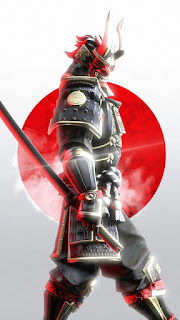Introduction
In the vast landscape of historical fiction, certain works stand out as monumental pillars, shaping our understanding and imagination of bygone eras. Among these, "Shogun" by James Clavell holds a revered position. Published in 1975, this sprawling epic takes readers on an immersive journey into the complex world of feudal Japan, weaving together elements of adventure, politics, culture, and romance. Spanning nearly a thousand pages, "Shogun" captivates audiences with its rich tapestry of characters and intricately plotted narrative set against the backdrop of Japan's tumultuous Sengoku period. Let us embark on a journey through this timeless masterpiece, exploring its themes, characters, and enduring legacy.
The Historical Context
To appreciate the depth and scope of "Shogun," one must first understand the historical context in which it is set. The Sengoku period, also known as the Warring States period, spanned from the late 15th century to the early 17th century in Japan. It was a time of incessant conflict as powerful feudal lords, known as daimyo, vied for supremacy, leading to a fractured political landscape and widespread chaos. Against this backdrop of intrigue and warfare, the stage is set for the arrival of an English navigator, John Blackthorne, whose shipwreck off the coast of Japan thrusts him into the heart of this tumultuous era.Characters: A Multifaceted Ensemble
At the heart of "Shogun" lies a diverse cast of characters, each meticulously crafted and imbued with depth and complexity. From the enigmatic samurai Lord Toranaga to the spirited Lady Mariko, Clavell's characters leap off the page, captivating readers with their ambitions, flaws, and inner conflicts. At the center of it all is John Blackthorne, the outsider whose perspective offers a window into the alien world of feudal Japan. Through his eyes, we witness the clash of cultures and the gradual unraveling of Japan's societal norms.
Lord Toranaga, modeled after the historical figure Tokugawa Ieyasu, emerges as a central figure in the power struggle gripping Japan. Cunning and strategic, Toranaga navigates the treacherous waters of politics with Machiavellian finesse, laying the groundwork for his eventual ascension to the position of shogun. Yet beneath his steely exterior lies a man burdened by the weight of his ambitions and the sacrifices they entail.
Lady Mariko, a woman of unparalleled grace and intelligence, serves as both a political player and a romantic interest for Blackthorne. Despite the constraints imposed by her gender, Mariko proves herself to be a formidable force, wielding influence behind the scenes and navigating the treacherous waters of court intrigue with poise and determination.
Themes: Clashes of Culture and Identity
"Shogun" explores a myriad of themes that resonate with readers on both a personal and societal level. At its core, the novel grapples with the clash of cultures and the complexities of identity in a world torn apart by conflict. As Blackthorne struggles to adapt to the customs and traditions of feudal Japan, he is forced to confront his own preconceptions and biases, ultimately undergoing a profound transformation in the process.
The notion of honor and loyalty looms large throughout the narrative, shaping the actions of its characters and driving the overarching plot. From the rigid code of bushido followed by the samurai to the intricate web of alliances and betrayals that characterize feudal politics, "Shogun" delves into the complexities of honor and duty in a society defined by its rigid hierarchical structure.
Legacy: Enduring Influence and Adaptations
Since its publication, "Shogun" has left an indelible mark on popular culture, inspiring numerous adaptations across various mediums. In 1980, the novel was adapted into a critically acclaimed miniseries starring Richard Chamberlain as John Blackthorne, introducing a whole new generation of viewers to Clavell's epic tale. Its influence can also be seen in other works of fiction, from films like "The Last Samurai" to video games such as "Total War: Shogun 2," which draw upon the rich tapestry of Japanese history and culture depicted in the novel.
But perhaps "Shogun's" greatest legacy lies in its ability to transport readers to a distant time and place, immersing them in a world of intrigue, honor, and adventure. As we journey alongside John Blackthorne through the perilous landscape of feudal Japan, we are reminded of the enduring power of storytelling to transcend boundaries and illuminate the complexities of the human experience.
Conclusion
In the realm of historical fiction, few works can rival the scope and ambition of "Shogun." James Clavell's magnum opus stands as a testament to the enduring power of storytelling, weaving together history and imagination to create a vivid portrait of feudal Japan in all its glory and turmoil. Through its unforgettable characters, themes, and legacy, "Shogun" continues to captivate and enthrall readers, inviting them to embark on an epic journey through the annals of history.




.jpeg)

.jpeg)
.jpeg)



0 Comments